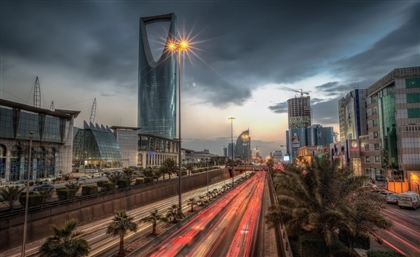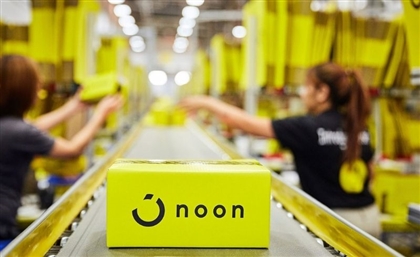MENA’s Fintech To Receive $2.5 Billion by 2022, What Does That Mean To Blockchain-Banned Countries?
The region’s blockchain technology just got a little more exciting, but what does that mean to countries where blockchain is illegal?

With MENA’s financial technology (fintech) market valued at $2 billion, MENA Research Partners (MRP) released a report on April 9th predicting an annual growth in the market estimated at $125 million till 2022, which is good news for Dubai, which has put together a plan to become the world's first blockchain city in a few years.
Anthony Hobeika, MRP’s Chief Executive Officer, tells Startup Scene ME that they have a database for global mergers and acquisitions (M&A); a business term that refers to the management, financing, and strategy involved with buying, selling, and - like the term suggests - merging companies. "We calculated the value of these M&A during the past years in the US, Europe, and Asia and derived the share of fintech in those totals which share was 5 percent," Hobeika elaborates. "We incorporated such ratios in our model for GCC M&As and reached $2 billion."
The region is going through an accelerated growth stage within the fintech space, which is considered as a disruptive force to the overall financial and banking industry, Hobeika says, explaining the urgency of MRP's study. "Fintech is changing the way financial services are rendered. For the unbanked – yet digital - population, fintech presents many means for financial inclusion," he adds. "For the banked population, fintech offers many new and efficient ways of transacting or even investing money."
Egypt is home to almost 100 million citizens, 10 percent of whom are banked, according to the state-owned Ahram Weekly. "A larger banking system would be more efficient and spur economic development," says Mokhtar Al-Sherif, an economics expert. "Egypt should work on increasing the percentage of the banked population to 50 percent.” In August 2017, Rami Khalil and Omar AbdelRasoul, co-founders of Bitcoin Egypt, the pioneer startup that aimed to introduce the Egyptian economy to blockchain, announced the launch of what would have been the country’s first platform for buying and selling bitcoins.
However, their plans were paused for the lack of legislation, and they were hoping the Central Bank of Egypt (CBE) would give them the green light soon. But little did they know that in January, the CBE would issue a warning against trading or transacting in bitcoins and other cryptocurrencies, saying that they were unstable because they were not backed by a government entity or any regulatory authority around the world. The CBE stressed that transactions in the country are limited to currencies printed and accredited by the bank, calling on traders in the local market to be extra careful and not to deal in these 'high-risk' bitcoins. "Cryptoassets are happening whether [the Egyptian government] joins in or not," Khalil told Reuters in August 2017. "And by not joining, they’re missing out on a very big market; currently, bitcoin is a $70 billion market."
Up until recently, banks across the region considered fintech as a competitor, but slowly came to the realisation that adopting fintech would actually improve their own services," says Hobeika. "Banks are currently acquiring, partnering and also sponsoring fintech companies. As an example, some GCC banks collaborated with specialised fintech startups to implement the new VAT regulations.”
In fact, tackling the gray economy in Egypt is something the banking sector has recognised, while being fully aligned with the government's financial inclusion goals, Commercial International Bank (CIB) Chairman Hisham Ezz El-Arab says. “We believe that the integration of current technology is the key to reach the young, unbanked population who comprise the vast majority of the gray economy,” he adds.
Launching many fintech products such as the Smart Wallet, Internet Banking, and the CIB Mobile Banking App, Ezz El-Arab boasts about CIB leading the way in finding digital solutions to the problem of the informal economy. “With 110 percent mobile penetration rate in Egypt, and only 10 percent of the population with access to financial services, CIB sees a huge growth opportunity in secure and cost-effective financial services delivered via mobile phone,” he adds.
Individuals and governments are panicking about the blockchain intervention, and how it would presumably make way for smoother thefts and forgery; but NU TechSpace’s PR and Partnership Specialist Mariam Yassin begs to differ. “With blockchain tech, it would be almost impossible to modify information and create fake identities without permission,” Yassin told Startup Scene. NU TechSpace, launching on April 21st, is Egypt's first blockchain-focused incubator and will start its first round with 10 startups out of 34 applicants.
On the other hand, UAE's commercial capital, Dubai, is preparing to become the region's first Blockchain City by 2022 - a short couple of years from now. Leaping towards this goal, Smart Dubai rolled out 20 blockchain-based services in January, according to the UAE's National. UAE buyers and sellers have started using blockchain in land transactions. "The applications are in various fields, some of them are in RTA, road and transport, some of them are in energy, health and education," says Aisha Bint Buti bin Bisher, the director general of Smart Dubai, on the sidelines of Unlock Blockchain Forum. "These 20-use cases are under pilot, and we are looking forward to see the results so we can scale it."
Launched in early 2017, the UAE-based ArabianChain was crowned as the first Arab public blockchain platform. In August 2017, a Saudi engineer pumped-in AED 3 million (around $817,000) and even though the startup was still in pre-revenue stage, it had already worked with global firms like Oracle, Microsoft, Ericsson and Dell-EMC with a special focus on the UAE, Saudi Arabia and Kuwait.
“While in 2010 funding of fintech was provided exclusively by venture capital firms, it is clear today that there is a shift to new funding vehicles such as accelerators, private equity institutions, corporation, banks and angel investors among others, highlighting the increased interest in fintech by a broader range of investors,” says Hobeika.
The Middle East's key players of the investment sector are growing an interest in wealth management, insurance, and other branches in the fintech sector, according to the MRP report. "MENA remains at the very early stages of fintech adoption, if compared to advanced countries or even Asian ones like China," the CEO says. "For example, based on market estimates, digital payments account only for less than 10 percent of total payments in the GCC region while reaching more than 60 percent in other emerging and developed markets. Furthermore, digital economy currently accounts for only 4 percent of GCC GDP, while reaching 8 percent in countries like US. Such numbers reflect the large potential ahead in a fast growing and ever changing digital and fintech industry," he elaborates.
Photo by Andre Francois (CC)
- Previous Article Techne Drifts to Take Entrepreneurs On a Nile Cruise in April
- Next Article 8 Wonder Women Entrepreneurs Crossing Milestones in Jordan
Trending This Month
-
Dec 28, 2025




















